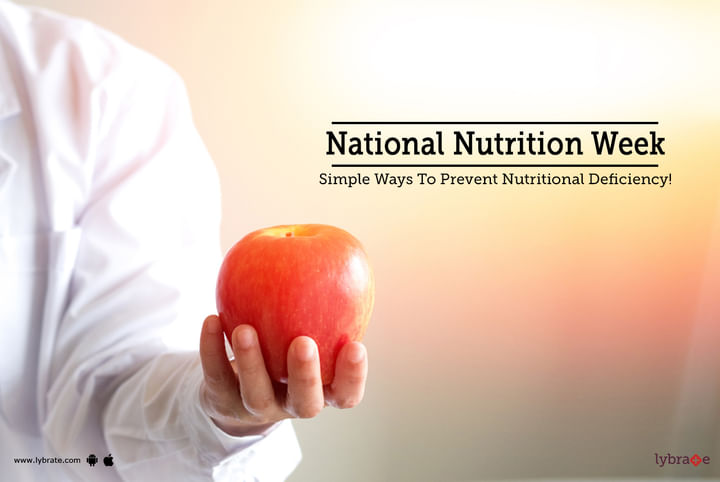National Nutrition Week - Simple Ways To Prevent Nutritional Deficiency!
The first week of September is observed as the National Nutrition Week to spread awareness about the pitfalls of nutritional deficiencies and how to address them. To spread awareness about this silent and unnoticed epidemic, National Nutrition Week is observed between 1st and 7th September.
Nutritional deficiency is a silent killer, especially in the present-day setting where several cannot afford a balanced meal, and many are giving into fad diet trends. This combined with the increasingly common sedentary lifestyle choices and lack of awareness about nutritional requirements paint a rather bleak picture of the prevalence of nutritional deficiencies. Combatting nutritional deficiency requires awareness. To achieve objectives of controlling rampant nutritional deficiencies, the first week of September is observed as the National Nutrition Week. To protect yourself from the common nutritional deficiencies, here is a list of simple things you can do.
-
Find out more about the common nutritional deficiencies - Common nutritional deficiencies arise out of diets that are not balanced in the major food groups. These food groups include carbohydrates, proteins, fats, vitamins, and minerals. A little research into the common deficiencies shows a deficiency of either vitamins or minerals. Include lots of fruits, vegetables, and supplements if absolutely necessary in your daily diet. Talk to a dietician about your daily diet and ensure you are on the right path. After all, knowledge is power.
-
Don’t miss out on the essential fats - Speaking of food groups, fats are the one is the single most avoided food group. However, it is important to know that not all fats are bad. In fact, it is vital for the proper functioning of the brain. Include more polyunsaturated fatty acids and Omega3 fatty acids in your diet. Fish and fish oil are the best source. Other options include avocadoes, almonds, coconut oil, etc.
-
Include fibres - Another overlooked food group contains fibres or the indigestible part of fruits and vegetable, mostly consisting of cellulose. They are incredibly important for the health of the intestine. Other than this, they can reduce the risk of Type 2 diabetes and protect the body from jumps in the insulin level after consuming sugary food.
-
Antioxidants are essential - Antioxidants found richly in bright and colourful fruits and berries and dark green vegetables. Among their several benefits, they protect the cells from oxidative damages caused by disease-causing germs and blocks cancer cells.
-
Organic over processed - Natural and organic food is superior in its nutrition content but also free from toxic pesticides and fertilizers. Additionally, they are rich in vitamins, minerals and fibres often lost in the processing and packaging of the food.
-
Chose unpolished over polished - The kernel found in unpolished and unprocessed food grains is a rich source of protein and fibre. Brown rice, oats, barley, unprocessed wheat or atta, and bulgur contain the nutrient-rich part of the staples that are otherwise discarded by all the processing.
Your body is your temple and it requires proper care and attention to what you put in it. Adopting these simple habits can ensure a healthy and balanced long life without the burden of diseases.



+1.svg)
